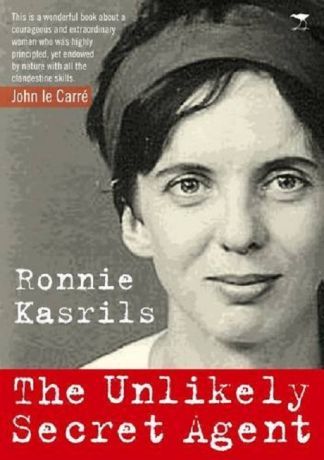Arts
You are here
The Unlikely Secret Agent

February 25, 2013
The struggle against Apartheid in South Africa is remembered fondly by socialists. One of the greatest freedom struggles of the last century, we can take inspiration from the incredible mobilization of thousands of the country’s black working class in general strikes and riots that made the system ungovernable. The incredible movements inside South Africa inspired people across the world to work in solidarity campaigns to boycott and isolate the apartheid regime.
Amidst this incredible history of resistance, there are a million individual stories that will remain forever a mystery. Lucky for us, Ronnie Kasrils (an anti-apartheid activist and member of the South African Communist Party, who worked in the South African government after apartheid was officially ended in 1994) has recorded one of them in this touching memoir of his deceased wife.
Set in South Africa in the midst of apartheid, The Unlikely Secret Agent tells the true story of Eleanor Kasrils, a Scottish-South African anti-apartheid activist and one of the first women involved in the Umkhonto we Sizwe (MK), the armed wing of the African National Congress (ANC).
Eleanor was arrested in 1963 by the Security Branch, who wanted her to lead them to her lover, Ronnie, who was suspected of being involved with a series of sabotage in Durban, as well as other MK members. Unbeknownst to the Security Branch, Eleanor herself was an active member of MK, working with Ronnie on many of those acts of sabotage, and heavily involved in the underground hiding of other members.
Ronnie tells the story of Eleanor much like the way a grandparent would tell the story to their grandchildren. The majority of the book deals with Eleanor’s arrest, her mistreatment at the hands of the lieutenant who arrested her, her incarceration and (spoiler alert) eventual escape. The section regarding her interrogation and incarceration are particularly moving, describing his threats, including insinuations of harm coming to her family, or the oft-repeated “I’ll break you or hang you!”
In protest of her mistreatment, Eleanor goes on a 6-day hunger strike, which results in her transfer into a mental facility. Ronnie also includes small personal details that speak to their deep relationship, such as signing her letters with Xs and Qs, Qs representing a hug with a hand pressed into the small of the back.
The story is told with much emotion, but little context of the greater struggle against apartheid. If you’re looking for more context and information about the ANC and the struggle as a whole, I would suggest looking elsewhere. However, this book is a fine example of an extraordinary woman who underwent severe hardship in the struggle for her beliefs, and the sacrifices that come along with the struggle.
Section:









